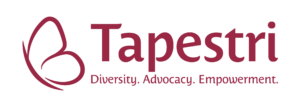Social Service Providers
Identifying and Interacting with Survivors of Human Trafficking
As a social service provider, you may have encountered victims of human trafficking without realizing their circumstances. The following provides a background on human trafficking, as well as tips for identifying and assisting survivors of human trafficking.
- Widespread throughout the United States, human trafficking is a form of modern-day slavery. While human trafficking is largely a hidden social problem, many survivors of human trafficking are in plain sight if you know what to look for.
- Trafficking is not just forced prostitution. Survivors of human trafficking may also be involved with other types of forced labor, including as domestic servants (nannies or maids), sweatshop factory workers, janitors, restaurant work, migrant farm workers, fishery workers, and hotel or tourist industry work.
- As a social service provider, you can help survivors of human trafficking reach the safety, protection, and resources they need. You may be the only outsider with the opportunity to speak with a survivor. Help is available to survivors, including housing, food, health care, and legal services, but first they must be identified.
Survivor Identification
A survivor of trafficking may look like many of the people you help every day. You can help survivors of trafficking get the assistance they need by looking beneath the surface for the following clues:
- Evidence of being controlled
- Evidence of an inability to move or leave her or his job
- Bruises or other signs of battering
- Fear or depression
- Non-English speaking
- Recently brought to this country from another
- Lack of passport, immigration, or identification documents
Traffickers use various techniques to keep victims enslaved. Some traffickers keep their victims under lock and key. However, the more frequent practice is to use less obvious techniques including:
- Debt bondage: financial obligations, honor-bound to satisfy debt
- Isolation from the public: limiting contact with outsiders and ensuring any contact is monitored or superficial in nature
- Isolation from family members and members of their ethnic and religious community
- Confiscation of passports, visas and/or identification documents
- Use or threat of violence toward survivors and/or families of survivors
- The threat of shaming survivors by exposing circumstances to family
- Telling survivors that they will be imprisoned or deported if they contact authorities
- Control of survivors' money
The result of such techniques is to instill fear in survivors of human trafficking. The survivors’ isolation is further exacerbated because many do not speak English and are from countries where law enforcement is corrupt and feared.
Survivor Interaction
Asking the right questions may help you determine if someone is a survivor of human trafficking. It is important to talk to a potential survivor in a safe and confidential environment. If the survivor is accompanied by someone who seems controlling, you should try to separate the survivor from that person. The accompanying person could very well be the trafficker.
You should also enlist the help of a staff member who speaks the potential survivor’s language and understands her or his culture. Although not ideal, you can enlist interpreter services, such as those provided by the AT&T Language Line.
If the survivor is a child, it is important to enlist the help of a social services specialist who is skilled in interviewing minor trafficking or abuse survivors. Screen interpreters to ensure they do not know the survivor or the traffickers and do not otherwise have conflicts of interest.
Assisting Survivors
If you think you have come in contact with a survivor of human trafficking, call Tapestri at 404-299-2185. If you are outside the state of Georgia, please call the National Human Trafficking Resource Center at 1-888-373-7888. This hotline will help you determine if you have encountered survivors of human trafficking, identify local resources available in your community to help victims and help you coordinate with local social service organizations to help protect and serve survivors so that they can begin the process of restoring their lives. For more information on human trafficking, please visit www.acf.hhs.gov/trafficking.
If you suspect you have encountered a survivor of human trafficking, it is important to collaborate among key service providers, including the U.S. Department of Health and Human Services, law enforcement and others at the local, state, and federal levels, to help the survivor get the protection and services she or he needs. Calling the Trafficking Information and Referral Hotline at 1-888-373-7888 will provide important guidance on enlisting these support services.
Source: ACF Rescue and Restore Campaign

